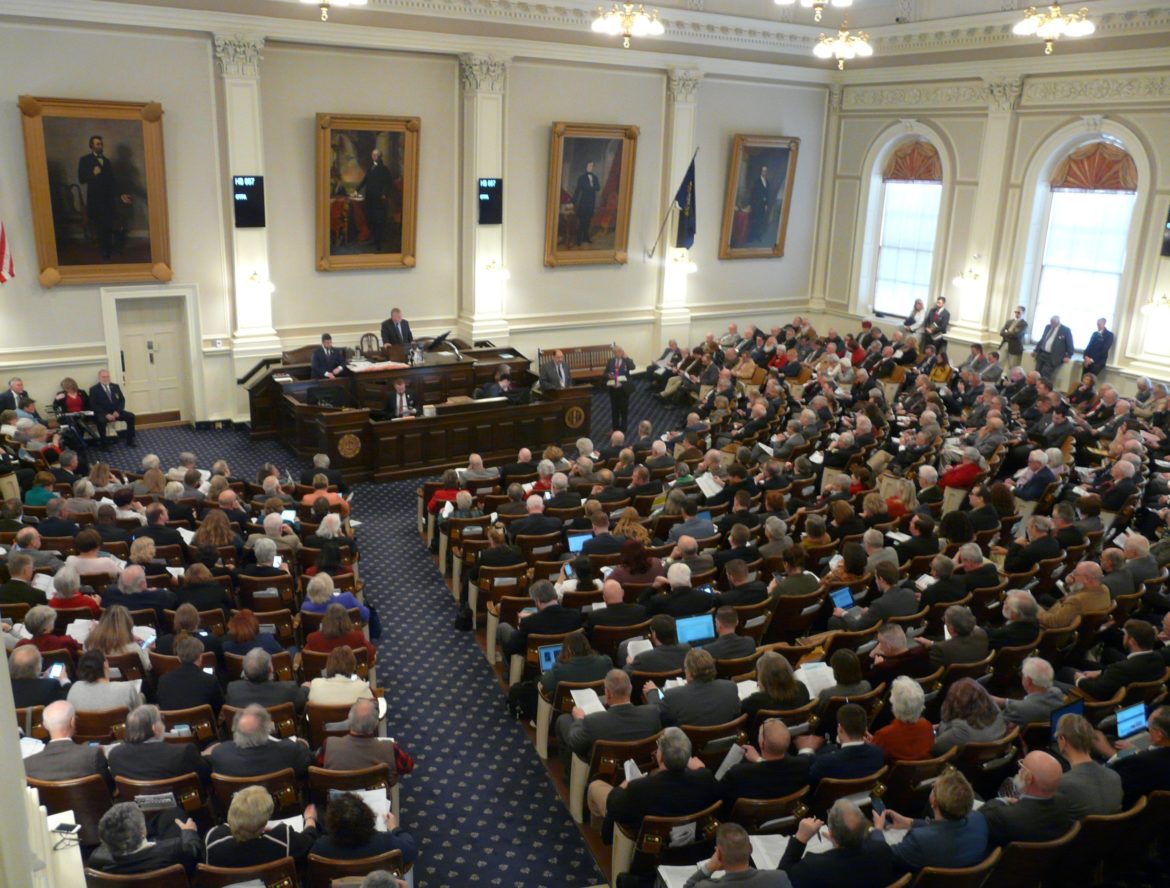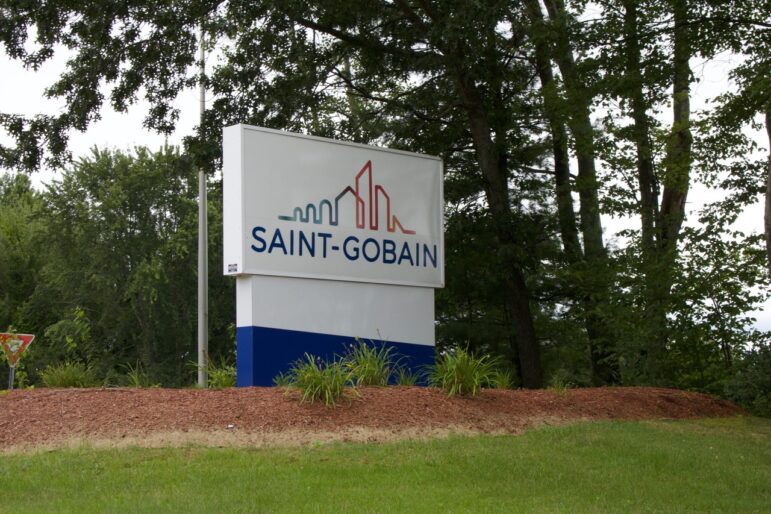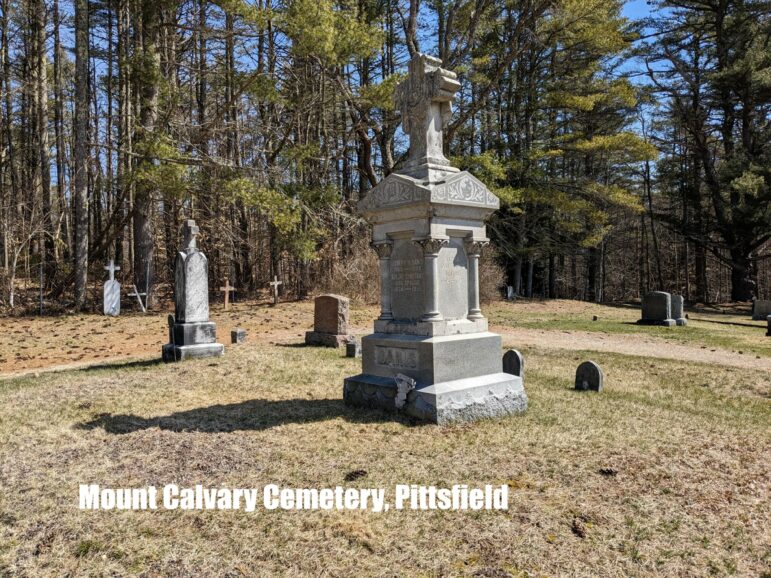By GARRY RAYNO, InDepthNH.org
CONCORD — The House Special Committee on Redistricting decided Thursday not to play with fire and will leave the number of house members at 400.
Under the constitution, the number of House members may be between 375 and 400, although traditionally it has been 400 members for quite some time.
The committee also determined it would assume cities will not change the number of wards and adjust the lines to equalize the residents across wards, as they begin drawing maps to change the political boundaries of the House.
The committee has a Nov. 18 deadline to finalize its report and present its work redrawing the district boundary lines for the House, the Executive Council and county commission districts in nine of the state’s 10 counties.
The state’s political boundaries have to be redrawn every 10 years after the U.S. Census is done to reflect the one citizen, one vote concept.
Many of the districts drawn 10 years ago for the House do not reflect equal representation due to population changes.
In New Hampshire, unlike other states, representatives serve as the governing bodies for counties, so representative districts cannot cross county lines, complicating the process.
However the constitution allows lawmakers to determine how many House members there are between 375 and 400.
Rep. Ross Berry, R-Manchester, a former GOP state party executive director, calculated at the committee chairs request what would be the closest to perfect number of representatives so they live within their county and the number was 391.
“That does not mean we should change it, we’ve had 400 for quite some time,” Berry said, “we just need to look at it and make a decision.”
The first step is to determine how many representatives each county would have.
With 400 members, three counties would lose a representative, Coos, Cheshire and Grafton, while Hillsborough, Rockingham and Strafford would gain a representative.
Some members were quick to say the number should remain at 400 and not changed to make redrawing the map easier or more efficient for the committee members.
Committee vice chair, Rep. Steve Smith, R-Charlestown, said the exercise “is good to highlight the difficult job we have, but it is not the goal to provide people with less representation.”
Rep. Marjorie Smith, D-Durham, said the issue may open up the question of how counties are governed and potential changes for future discussion.
But she noted, “We have enough slings and arrows focused on us, we do not want people to have another reason to challenge us.”
The committee voted unanimously to draw House maps with 400 representatives.
The committee also decided that in order to begin its work of drawing new boundaries, it needs to decide how to handle cities and when the local bodies would finish their work to reset ward lines to align with the new U.S. Census data.
Rep. Paul Bergeron, D-Nashua, and the former Nashua City Clerk, told the committee the only city that may be finished redrawing their ward lines is Rochester, while most others will do the work after elections next month or through the charter process.
He said many cities waited for the release of new census data last week as the original data was not that helpful.
Bergeron said 10 years ago the redistricting committee told the cities it would equalize the numbers for the wards and use those figures to draw the maps and have the city do its work to redraw ward lines.
Berry said some city wards are off by a lot using Ward 12 in Manchester as an example, saying it contains 12,000 residents while another ward has 9,000, meaning the votes in Ward 12 are diminished.
“Cities have to get on this and draw the lines as early as possible,” Berry said. “I want to say this is a massive undertaking and we have to let these cities know they have got to get going.”
Rep. Carol Mcguire, R-Epsom, said she has begun working on a map for Merrimack County, but it is impossible to do without including some parts of Concord with another town.
Currently one representative’s seat includes Concord and Hopkinton.
Committee chair Rep. Barbara Griffin, R-Goffstown, said the committee could determine the number of representatives for each city, assume the number of wards won’t change because they are set in city charters, and assume city officials will make wards nearly equal in population.
Despite several suggestions for waiting, Griffin said the committee is to finish its work by Nov. 18.
After a lengthy discussion the committee voted unanimously to set the number of representatives for the cities, let the cities draw the ward lines and make whatever adjustments are needed at a later date.
The committee also heard from David Andrews of Open Democracy Action about a method he used to maximize the number of single-town districts as required by the constitution.
Voters approved a change in the constitution that requires every community that has enough population to have a representative of its own.
Under the new census data, a House member represents 3,444 citizens.
However, making adjustments to keep the deviation low among different districts makes that impossible in some cases and communities with populations below 3,444 have to be combined with another town or city ward.
He said using his “component alternative” method, he was able to maximize the number of single representative districts.
Andrews was asked if his method was vetted by a court, and he said no, but the Supreme Court in finding the aggregate method unconstitutional, suggested the component method and left open any other methods that lowers the deviation of floterial districts.
The committee, along with the Senate redistricting committee, has been holding public hearings in the state’s 10 counties.
The one scheduled Thursday evening in Manchester was cancelled after anti-vaccination protesters disrupted and ended the Executive Council meeting Wednesday at Saint Anselm College.
The Hillsborough County hearing will be rescheduled, Griffin said, but the location has to change.
The next public hearing is scheduled for Oct. 5 in the Rockingham County Courthouse in Brentwood at 6 p.m.
The hearings will run through Oct. 19 with Belknap County’s hearing in Laconia at the Belknap Mills.
Griffin urged members to begin drawing maps for the House districts and said she would schedule meetings to discuss them in the future.
Garry Rayno may be reached at garry.rayno@yahoo.com.





